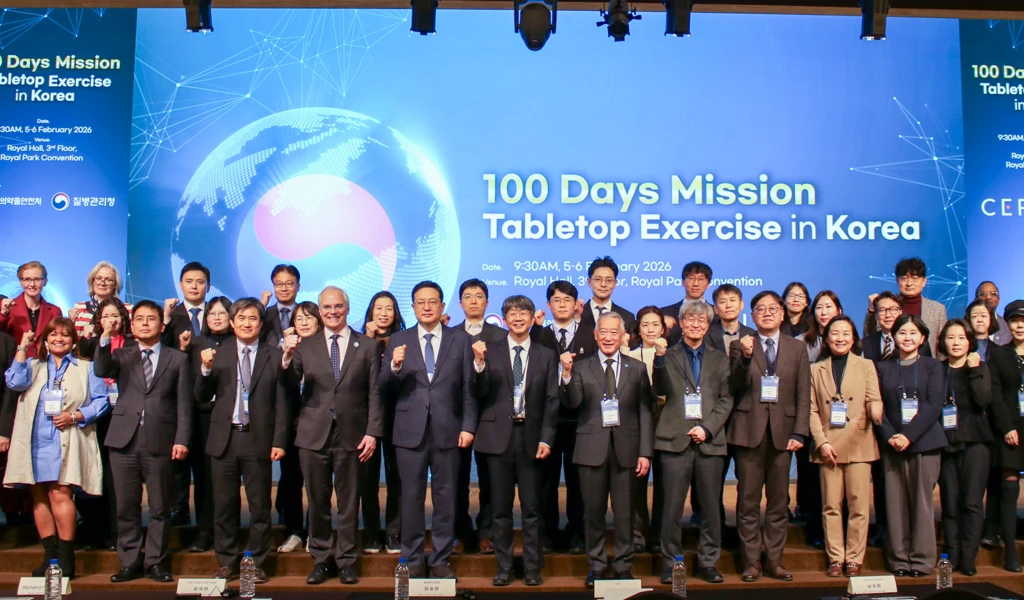AI-enhanced self-amplifying mRNA vaccine set to combat one of the deadliest known viruses

- CEPI to expand collaboration with Gennova Biopharmaceuticals Limited, providing up to US$13.38 million to advance the development of a vaccine candidate against Nipah virus using their self-amplifying mRNA vaccine technology.
- Gennova will also work with Houston Methodist Research Institute to apply cutting-edge AI technology to identify potential Nipah vaccine targets.
- Preclinical and phase 1 vaccine tests will be done by Gennova in India, where multiple Nipah outbreaks have been reported over the past 20 years. As many as 75 percent of those infected die.
31 March 2025, OSLO Norway: A pioneering self-amplifying mRNA (saRNA) vaccine candidate against the deadly Nipah virus will be developed by Pune-based Gennova Biopharmaceuticals Limited, as part of expanded funding from CEPI worth up to US$13.38 million. To accelerate development of a Nipah vaccine candidate, Gennova will also team up with US-based Houston Methodist Research Institute (HMRI), also a CEPI partner, to use their cutting-edge AI technology to optimise the properties of proteins derived from the virus that could stimulate the immune system and serve as optimal vaccine targets for Gennova to investigate in the lab and in the clinic.
Nipah virus belongs to the Paramyxovirus family. It is one of the deadliest pathogens known to infect humans. So far, Nipah outbreaks have been confined to South and Southeast Asia, but the fruit-bat vector is found in large geographical areas across the globe covering a population of more than 2 billion people.
“With no vaccines or specific therapeutics approved for human use against Nipah, CEPI is leading the charge to protect the world against this deadly virus committing over US$100 million to its Nipah programmes and advancing the first ever Nipah vaccine candidates into Phase 1 studies and through to completion”, said Dr Kent Kester, Executive Director of Vaccine Research and Development at CEPI. “Gennova’s work will not only help establish the suitability of the saRNA platform for use against Nipah but also its suitability as part of a wider group of RNA technologies that could enable rapid responses to future Disease X threats, potentially within 100 days of identification.”
mRNA vaccines use the body's own machinery to make antigenic protein rather than injecting the antigen directly into the body. saRNA vaccines work by giving the body instructions to replicate mRNA needed to create the desired antigen, potentially enhancing the immune response with lower doses compared to existing mRNA vaccines.
In August 2023, CEPI initially provided up to $3.6 million to support the optimisation of Gennova’s saRNA-platform technology to develop vaccine candidates against unknown pathogenic threats, also referred to as Disease X. The initial tranche of funding was part of CEPI's programme to support novel RNA vaccine platform technologies for emerging and select endemic infectious diseases, which could offer substantial advantages over existing mRNA technologies, such as multivalency, improved immunogenicity, storage and stability, productivity, response time, and cost-of-goods.
Dr. Sanjay Singh, CEO of Gennova Biopharmaceuticals Limited, shared optimism about the collaboration with CEPI and HMRI, viewing it as a significant advancement in the fight against the Nipah virus. “By harnessing the cutting-edge capabilities of our saRNA platform, we are committed to developing a revolutionary next-generation vaccine. This partnership not only sets a new standard for the rapid development of mRNA vaccines but also ensures equitable access and strengthens global health security”, said Singh.
CEPI is committed to enabling equitable access to the vaccines, products and innovations it supports. Through its agreement to enter into partnership with CEPI, Gennova has demonstrated its shared commitment to ensuring equitable access to its technology in line with CEPI’s Equitable Access Policy, notably committing to vaccines being available first to populations at risk when and where they are needed at an affordable price. This also includes the potential application of its technology to future vaccine development of interest to CEPI, including a commitment to technology transfer.
- ENDS -
Notes to Editors
Gennova's saRNA technology stands out for its innovative approach, utilising four independent and scalable operations: plasmid production, mRNA synthesis, nanoparticle formulation, and lyophilisation. This pioneering platform not only allows for the efficient manufacturing of potential vaccine candidates but also ensures that these processes can be seamlessly scaled and easily transferred between manufacturers when needed.
About CEPI
About CEPI
CEPI is an innovative partnership between public, private, philanthropic and civil organisations. Its mission is to accelerate the development of vaccines and other biologic countermeasures against epidemic and pandemic threats so they can be accessible to all people in need. CEPI has supported the development of more than 50 vaccine candidates or platform technologies against multiple known high-risk pathogens or a future Disease X. Central to CEPI’s pandemic-beating five-year plan for 2022-2026 is the ‘100 Days Mission’ to compress the time taken to develop safe, effective, globally accessible vaccines against new threats to just 100 days.
About Gennova
Gennova Biopharmaceuticals Limited, a subsidiary of Emcure Pharmaceuticals Ltd., and headquartered in Pune, India, is a biotechnology company dedicated to the research and development, production, and commercialization of biotherapeutics and vaccines to address life-threatening diseases.
Gennova is transforming healthcare by creating efficient and effective solutions for manufacturing and successfully commercializing bio-therapeutics across cardiovascular, neurology, nephrology, ophthalmology, and oncology segments.
Gennova has developed an mRNA-based platform technology for COVID-19 vaccines, on which India's first mRNA vaccine, GEMCOVAC®-19 was developed. The company also developed an Omicron-specific vaccine, GEMCOVAC®-OM, as a booster dose. Both vaccines received Emergency Use Authorization from the Drug Controller General of India (DCGI), highlighting their safety and efficacy in combating the pandemic.


.webp)
